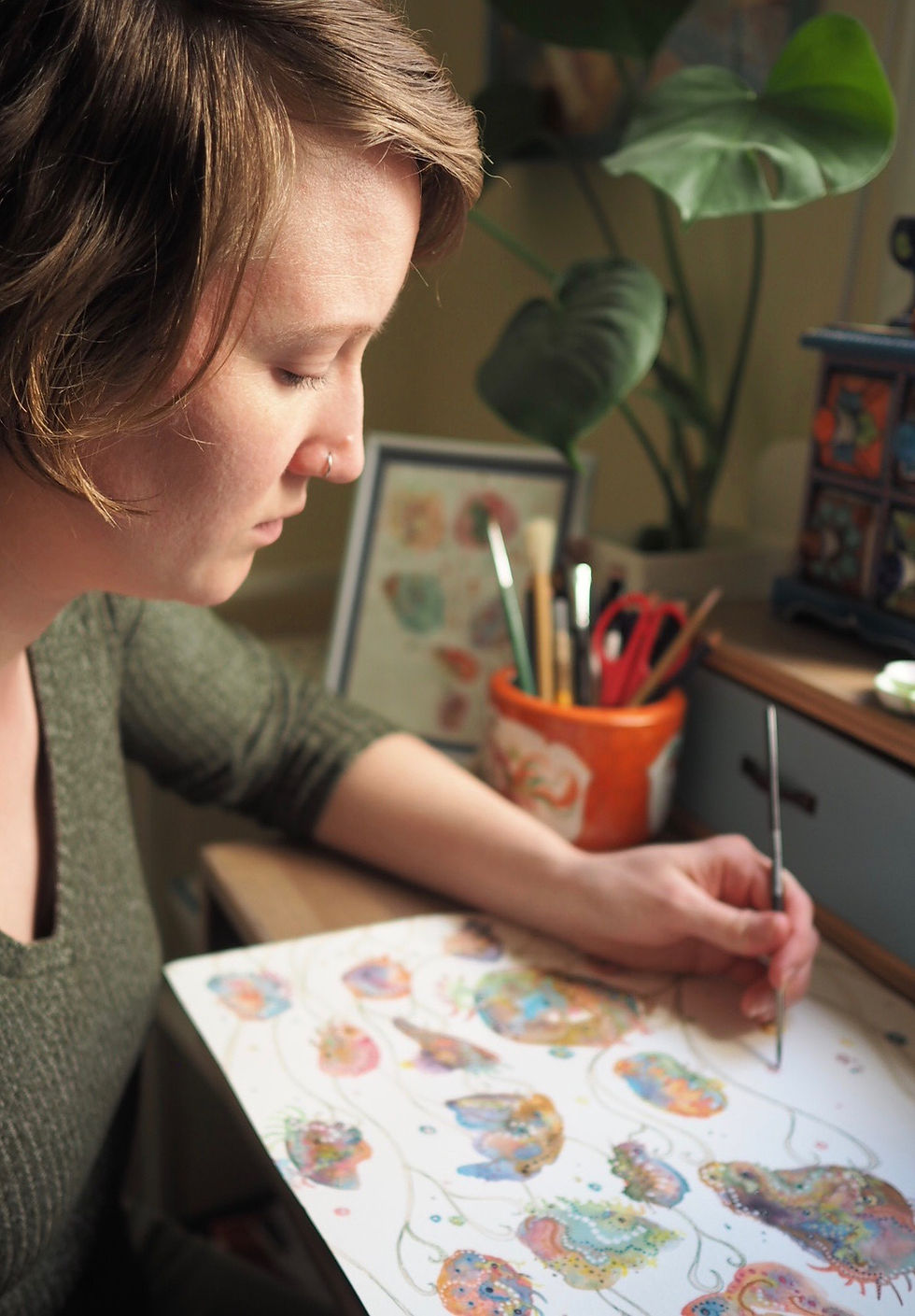Your Lifestyle Has Already Been Designed
- Miriam Rowe

- Aug 31, 2018
- 3 min read
This is the title of an article I ran across in 2014-- and it's stuck with me, ever since.
The writer goes on to explore the idea that our culture's standard 40-hour-work-week turns us into The Perfect Consumers: people who are too busy to do things themselves, but people who have just enough free time and disposable income to pay for luxuries and conveniences that get them through "another week". This, in turn, keeps them trapped, repeating the cycle over and over.

"We’ve been led into a culture that has been engineered to leave us tired, hungry for indulgence, willing to pay a lot for convenience and entertainment, and most importantly, vaguely dissatisfied with our lives so that we continue wanting things we don’t have. We buy so much because it always seems like something is still missing. The perfect customer is dissatisfied but hopeful, uninterested in serious personal development, highly habituated to the television, working full-time, earning a fair amount, indulging during their free time, and somehow just getting by." - The Real Reason for the 40 Hour Work Week
Reading this was a huge wake-up call to me.
This was in 2014, and at this point, I'd spent over 2 years traveling the world for work. Most weekends were spent working, most week days were spent working. Most months, I was on the road for 3 out of 4 weeks, and "free time" meant going out all night to let off steam and try to make friends outside of work, then sleeping it off as much as possible until the travel started again.
I was isolated, I was exhausted, I was lonely, but I was so busy in my cycle of work-binge-sleep-work that I never stopped to realise that. Plus, in this industry, almost everyone around you is doing exactly the same thing; it seems normal.

I kept on going, but the longer it went on, the more empty it felt, and the more dissatisfied I became. Even on vacations, I was still doing emails every day ("It'll make it so much easier when I get back to work", I'd tell myself), and for a couple of years, I didn't even use all my vacation days.
In 2016, I joined a company that had much more respect for the work-life balance of its employees. I traveled less, I was home more, and when I worked weekends I had the opportunity to get some of that time back. It changed everything. I started to reconnect with the things I'd been too exhausted to even remember liking-- reading, painting, catching up with my friends and family regularly, and traveling for fun.
"The ultimate tool for corporations to sustain a culture of this sort is to develop the 40-hour workweek as the normal lifestyle. Under these working conditions people have to build a life in the evenings and on weekends. This arrangement makes us naturally more inclined to spend heavily on entertainment and conveniences because our free time is so scarce. I’ve only been back at work for a few days, but already I’m noticing that the more wholesome activities are quickly dropping out of my life: walking, exercising, reading, meditating, and extra writing. The one conspicuous similarity between these activities is that they cost little or no money, but they take time."
Moving out of the centre of Hong Kong City was the next step-- it got me away from my shoebox apartment that cost more per month than I ever thought I'd pay for anything. I got a bigger space, in the Outer Islands, and soon found that I actually wanted to spend time at home-- I didn't need to go out every night, because I had a space I loved. I had a space that friends wanted to spend time in. I had a place to rest, and to create.

I started cooking, gardening, painting, reading, writing...
Then I started wondering what I would do, if I was out of the "work-week" cycle.
How much more could I do? Where would that take me?
So that's where I am, now.
I've decided to take a year off of work-- break the cycle, break the habits that cycle builds, reset, and up-skill.
Let's see where that goes!




Comments